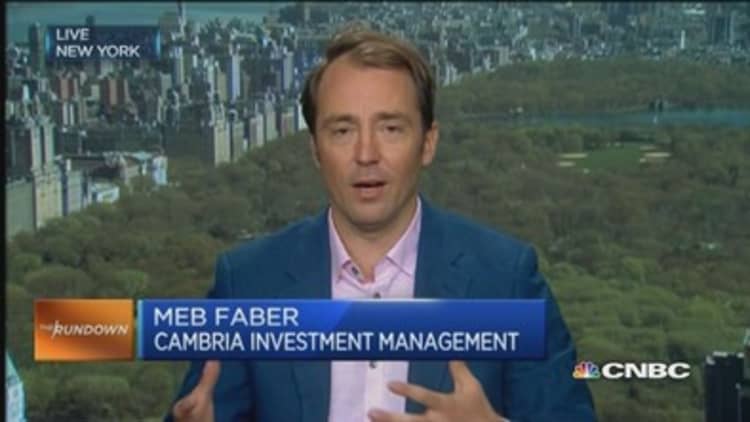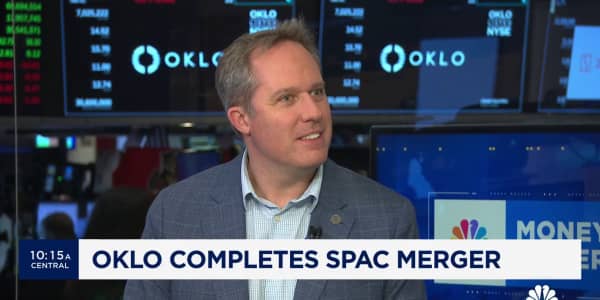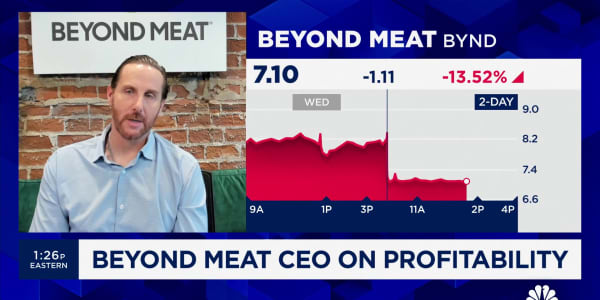A single bad currency bet has caused one of the largest and longest-standing private investors in emerging markets to collapse.
Everest Capital—a 25-year-old hedge fund firm that counted George Soros and Nelson Peltz as early backers and has ties to Condoleezza Rice and Robert Gates—is closing six of its seven remaining hedge funds, according to a private letter sent to investors Feb. 24.
The move comes after its largest fund, Everest Capital Global, suffered crippling losses in January and was shut down.
Everest, which overall managed more than $3 billion at the end of December, had bets on the Swiss franc that backfired when the Swiss National Bank shocked markets in mid-January by removing a cap on the currency's value versus the euro. That caused the Swiss franc to soar more than 30 percent versus the euro, burning many investors in what had seemed like a low-risk trade.
The exact loss for Everest was unclear, but it was likely magnified by borrowed money, according to experts. A large portion of the fund's $830 million assets was wiped out, according to a person familiar with the situation.
"I am saddened that our firm—which over the past 24 years identified and invested in hundreds of exciting investment opportunities in emerging markets—will cease to operate in its current form as a result of the events impacting the Global Fund," founder Marko Dimitrijevic wrote in the letter.
Dimitrijevic said in the letter that a "significant number of redemptions" had come in since the global fund collapsed, resulting in the decision to shut all but one fund.
Assets for the Miami-based firm fell to $2 billion by the end of January, according to separate investor materials, and presumably declined further over February. The funds will have most of their capital returned to investors by the end of March, according to the letter. The remaining emerging markets fund managed $570 million at year end, meaning Everest will have lost at least 81 percent of its peak assets.
A spokesman for Everest declined to comment.
Read MoreManager 'truly sorry' for blowing up hedge fund
Institutional investors are generally risk averse, so the mass move out did not surprise industry watchers.
"Anytime one fund blows up, many investors today tend to shoot first and ask questions later due to worries about risk controls, headline risk, etc.," said Michael Hennessy, managing director for investments at Morgan Creek Capital Management, a $4 billion money manager that places capital with hedge funds.
Pensions, endowments and other institutional investors made up about about half of Everest's client base as of 2010, according to an Institutional Investor profile. One recent investor was the Alaska Retirement Management Board, which invests state worker pension funds. A spokesman for the fund and the investment consultant, Callan Associates, which recommended Everest, did not respond to requests for comment.
It's possible investors were not fully aware of the risk Everest was taking in its global fund on the Swiss franc.
A performance report issued to clients in January for December showed a net exposure of negative 24 percent to all European currencies. It noted a short position on the Swiss franc, which had made money in December, but did not disclose the size of the position.
"The December exposure sheet states a short position in the Swiss franc, but you would have no sense they had a massive Swiss franc bet on," said Michael Weinberg, a hedge fund exert and adjunct professor of finance and economics at Columbia Business School.
Weinberg noted that it was possible Everest later increased the position materially.
To be sure, the fund strategy was to focus on stocks, but also had the ability to invest in currencies, commodities and debt, according to marketing materials. Investors also knew Everest could employ as much leverage as it liked and that it has no limits on the size of positions, including currencies. And returns had been volatile before: The global fund gained about 60 percent in both 1996 and 1999, but it also fell 45 percent in 1998 and 22.7 percent in 2008.

The news represents a dramatic reversal for Dimitrijevic.
Peltz of Trian Partners and Soros of Soros Fund Management were early backers, according to media reports, and Dimitrijevic was able to survive steep losses tied to Russia's debt default in 1998 and the financial crisis of 2008.
Despite that volatility, Dimitrijevic's long-term returns were strong.
Everest's emerging markets fund produced an annualized return of 10.9 percent since inception in January 1995 through December 2014. That compares to a return of 5.8 percent for the MSCI Emerging Markets index. The now-defunct global fund had returns of 12.3 percent from February 1991 through 2014, compared with 7.5 percent for the MSCI AC World index.
Everest more recently developed a partnership with international consulting firm RiceHadleyGates, which drew on the experience of three senior officials under former president George W. Bush: Rice, the former secretary of state; Gates, the former secretary of defense; and Stephen Hadley, a national security advisor.
For example, Everest and RHG co-authored a report on Africa investing together, and Rice was a keynote speaker at the Everest Capital Emerging Markets Forum in New York in October.
RHG did not respond to a request for comment.
Read MoreHere are the best hedge funds for 2015: Experts
The future of the Everest team is unclear. Dimitrijevic noted in the letter that he was attempting to place some employees at another firm. Everest had 45 employees in Miami and Singapore as of December, according to a filing. Of the group, 23 worked on investing.
"This decision was a very difficult one for me personally," Dimitrijevic wrote. "That said, I remain incredibly proud of our work, our team and our results over the past two decades."






